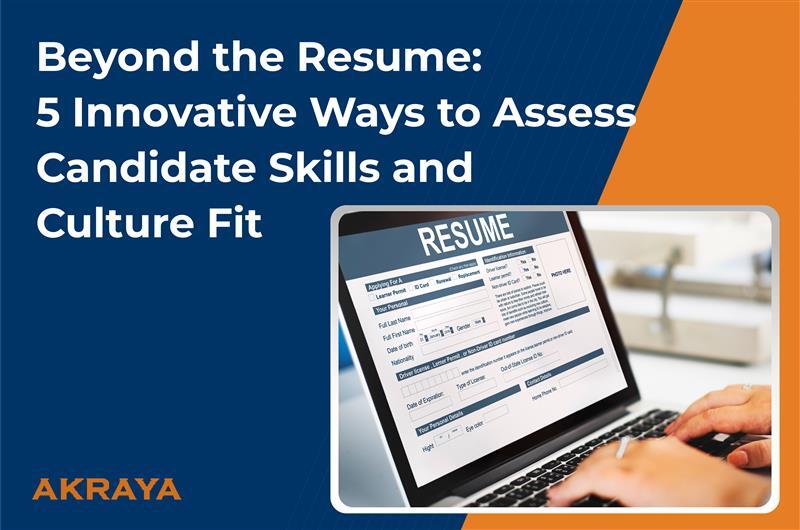2 min read
The Global Talent Crisis: Why Skilled Workers Are Scarce—And How to Fix It
Rinki Yumnam : April 04, 2025

The global talent landscape is undergoing a seismic shift, with businesses across industries struggling to fill critical roles due to a persistent skilled labor shortage. From technology to healthcare and manufacturing, companies are facing a widening gap between the skills available in the workforce and the skills required for success in today’s economy.
This crisis is no longer a localized issue but a worldwide challenge that requires collective action from businesses, governments, and educational institutions.
Understanding the Skilled Talent Shortage
1. The Root Causes
Several interconnected factors drive the skilled talent shortage:
- Rapid Technological Advancements – Emerging technologies like AI, automation, and digital transformation are reshaping job roles faster than the workforce can upskill.
- Demographic Shifts – Aging populations in many developed countries are leading to a shrinking workforce.
- Educational Gaps – Traditional education systems are often slow to adapt to industry needs, leaving graduates without the skills required in the modern job market.
- Changing Workforce Expectations – Skilled professionals now prioritize flexibility, work-life balance, and purpose-driven work, making it challenging for companies to attract and retain top talent.2. Industries Most Affected
The impact of the skilled talent shortage is evident across multiple industries:
- Technology – A shortage of software engineers, cybersecurity experts, and AI specialists is slowing innovation.
- Healthcare – The growing demand for healthcare professionals is outpacing supply, putting pressure on global healthcare systems.
- Manufacturing – The transition to Industry 4.0 requires highly skilled technicians, yet the industry struggles to attract young talent.
- Engineering & Renewable Energy – The global push toward sustainability demands a skilled workforce in green technologies, but supply remains insufficient.
Solving the Global Talent Shortage: A Multi-Pronged Approach
Addressing this crisis requires a collaborative effort between businesses, governments, and educational institutions. Key solutions include:
- Emphasizing Skills-Based Hiring
Rather than focusing solely on degrees and traditional qualifications, companies must adopt a skills-first hiring approach. Skills-based hiring opens doors for talented individuals with non-traditional backgrounds, career returners, and self-taught professionals—widening the talent pool significantly.
- Upskilling and Reskilling Initiatives
Businesses must invest in continuous learning and professional development programs to keep employees’ skills relevant. Returnship programs—like those offered by Akraya’s Women Back to Work (WBW) initiative—help experienced professionals re-enter the workforce with updated skills.
- Global Talent Sourcing
Companies can leverage remote work and international hiring to tap into skilled professionals across different regions. Partnering with global staffing solutions can help businesses bridge talent shortages efficiently.
- Stronger Academia-Industry Collaboration
Education systems must evolve to align with industry needs. Stronger partnerships between universities, vocational programs, and corporations will ensure that graduates are equipped with job-ready skills.
- Creating Inclusive Workplaces
Inclusion plays a crucial role in attracting and retaining talent. Companies that prioritize inclusivity, foster supportive work environments, and implement returnship programs will gain a competitive advantage in securing and retaining top talent.
A Future-Ready Workforce Requires Proactive Action
The skilled talent shortage is not an isolated problem—it’s a global challenge that demands bold and strategic solutions. Businesses that invest in upskilling, embrace inclusivity, and rethink traditional hiring practices will be best positioned to thrive in the future of work.
At Akraya, we are committed to bridging the talent gap by connecting businesses with skilled professionals and driving innovative hiring strategies. Let’s work together to build a future-ready workforce.
Need help finding skilled talent?
Akraya specializes in sourcing highly qualified professionals across industries. Get in touch today to discuss your talent needs!
How can we help you today?
Case Studies

Accelerating Application Modernization for a Global Commerce Leader
Akraya transformed application infrastructure into a $900M+ revenue accelerator, enabling scalable growth and future-proofing against next-gen demands.

Unlocking Revenue Growth for a Fortune Retailer with Talent On Demand
Akraya’s talent-on-demand strategy transformed merchandising into a predictive revenue engine, driving $8.4B in new sales and enabling the most responsive omnichannel system in the industry.

Beyond the Resume: 5 Innovative Ways to Assess Candidate Skills and Culture Fit
Beyond the Resume: 5 Innovative Ways to Assess Candidate Skills and Culture Fit Why the Resume Alone Isn’t Enough

Why Talent Acquisition and Procurement Leaders Must Align in the Age of Skills-Based Hiring
The Talent Playbook Has Changed, and Now the Players Must Also Change The modern talent playbook has undergone a seismic shift. Job titles and...

